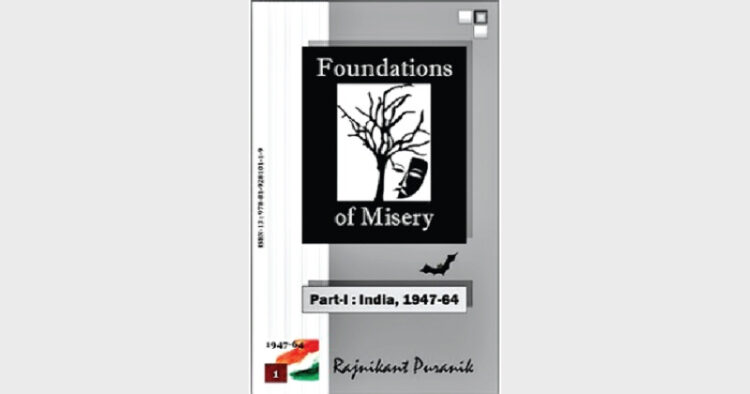There is much that is not commonly known about the shocking aspects of the 1962 India-China War, so shocking indeed that S Gopal, Nehru's official biographer, was constrained to comment: “Things went so wrong that had they not happened it would have been difficult to believe them.” The Henderson-Brooks report covered only the limited aspects their authors were tasked with. The book “Foundations of Misery” by Rajnikant Puranik in its chapter “Himalayan Misadventure” details all the aspects of that avoidable war. We are serialising that chapter.
Although no enquiry was set up by the Indian Cabinet or the Government, the new Chief of Army Staff, General Chaudhuri, did set up an Operations Review Committee headed by Lieutenant-General TB Henderson-Brooks, aka HB, of the Indian army—an Australian-born, second-generation English expatriate who had opted to be an Indian, rather than a British, citizen in the 1930s—with Brigadier Premendra Singh Bhagat, Victoria Cross, then commandant of the Indian Military Academy, as a member. However, the terms of reference of the Committee were never published; it had no power to examine witnesses or call for documents; and it had no proper legal authority. The purpose was to ensure it didn’t morph into a comprehensive fact-finding mission that could embarrass the government. Reportedly, its terms of reference were very restrictive confined perhaps to only the 4 Corps’ operations. However, going by the fact that the report, referred to as the Henderson-Brooks Report or Henderson-Brooks/Bhagat Report or HB/B Report—submitted in April 1963—of even such a handicapped Committee has been kept classified and top secret even till today signifies that the Committee went beyond its limited terms of reference, did some very good work and managed to nail the root causes, which the powers that be wanted to remain hidden. Perhaps, had the HB report been made public, Nehru would have had to resign.
Writes Kuldip Nayar in Beyond the Lines: “…in September 1970, [General] Thapar [who headed the army at the time of the war] approached Indira Gandhi…to allow him to see the [HB] report…She did not however concede the request…When I was a Rajya Sabha member from 1996, I wanted the report to be made public. The government refused to do so ‘in public interest’. My hunch was that the report had so severely criticized Nehru that the government, even headed by the BJP, did not want to face the public anger that would have been generated… I used the RTI facilities in 2008 when I wanted access to the Henderson Brooks inquiry report…[but didn’t succeed]…”
As per the Hindustan Times report titled 'Incorrect maps given to China led to 1962 war' of October 22, 2012: “…India presented contradictory maps on the McMahon Line to China in the fifties and in 1960-61, which ultimately led to the war with China in 1962. This revelation was made by Wajahat Habibullah, former Chief Information Commissioner (CIC), perhaps the only civilian besides defence secretaries to have officially accessed the top secret Henderson Brookes-Bhagat report. ‘We had given maps with serious contradictions on the layout of the McMahon Line to China. This led the Chinese to believe that one of the pickets being controlled by our forces in the Northeast was theirs—according to one of the maps given to them by us,’ said Habibullah, declining to name the picket along the Arunachal Pradesh border with China…Accordingly, on October 20, 1962, the Chinese army crossed over to occupy the border picket, leading to open hostilities…Habibullah got the go-ahead to access to the report after journalist Kuldip Nayar's appeal under the RTI Act in 2005 [or, was it 2008?] to get a copy of the report.”
Writes Claude Arpi in an article posted on the web in 2004: “Unfortunately, historians and researchers have never been allowed access to original materials to write about Nehru's leadership during the troubled years after Independence. It is tragic that the famous 'Nehru Papers' are jealously locked away in the Nehru Memorial Library. They are, in fact, the property of his family! I find it even more regrettable that during its six years in power, the NDA government, often accused of trying to rewrite history, did not take any action to rectify this anomaly. Possibly they were not interested in recent history! …As a result, today history lovers and serious researchers have only the 31 volumes published so far of the Selected Works of Jawaharlal Nehru (covering the period 1946 to 1955) to fall back on. This could be considered a partial declassification of the Nehru Papers, except for the fact that the editing has always been undertaken by Nehruvian historians, making at times the selection tainted. The other problem is that these volumes cover only the writings (or sayings) of Nehru; notes or letters of other officials or dignitaries which triggered Nehru's answers are only briefly and unsatisfactorily resumed in footnotes.”
(www.rkpbooks.com, www.facebook.com/fom.p1, rajnikantp.blogspot.in, twitter.com/Rajnikant_rkp, [email protected])














Comments